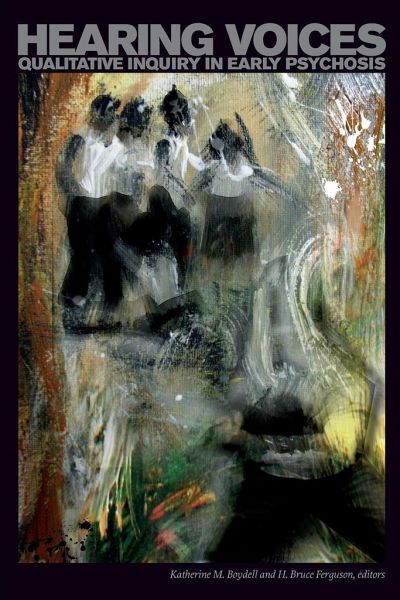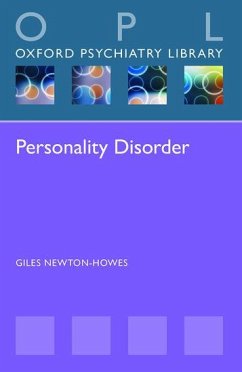
Hearing Voices. Qualitative Inquiry in Early Psychosis
Versandkostenfrei!
Versandfertig in über 4 Wochen
37,99 €
inkl. MwSt.

PAYBACK Punkte
19 °P sammeln!
Qualitative methods are increasingly useful as psychiatry shifts from a focus on symptom reduction to enabling people to live satisfying and meaningful lives. It becomes important to achieve a deeper understanding of the ways in which mental illness interferes with everyday life and the ways in which people can learn to manage and minimize illness in order to pursue their lives as fully as possible. Although qualitative methods in psychiatry have seen a dramatic upsurge, relatively few published studies use such methods specifically to explore the lives, socio-culturally and experientially, of...
Qualitative methods are increasingly useful as psychiatry shifts from a focus on symptom reduction to enabling people to live satisfying and meaningful lives. It becomes important to achieve a deeper understanding of the ways in which mental illness interferes with everyday life and the ways in which people can learn to manage and minimize illness in order to pursue their lives as fully as possible. Although qualitative methods in psychiatry have seen a dramatic upsurge, relatively few published studies use such methods specifically to explore the lives, socio-culturally and experientially, of those with first-episode psychosis. This book highlights qualitative research in early psychosis. The first half of the book centres on the individual lived experience of psychosis - from the perspective of the individual, the family, and the practitioner. The second half moves from the micro level to the macro, focusing on broader system issues, including medical trainees' encounters with first-episode psychosis in the emergency room and the implementation of first-episode clinics in the UK and Australia. This text is timely, as the proliferation of early-psychosis clinics worldwide demands that we inquire into the subjective experience of those impacted by psychosis and the social contexts within which it occurs and is lived out. Hearing Voices is the first in a series of titles from The Community Health Systems Resource Group at The Hospital for Sick Children. This series will educate researchers, policy-makers, students, practitioners, and interested stakeholders on such topics as early intervention in psychosis, aggressive-behaviour problems, eating-related disorders, and marginalized youth in educational contexts.







![A Defence of Dr. Eric Benzel Sparham, Charged and Convicted of the Crime of Murder [microform]: Being a Medico-legal Inquiry Into the Cause of the Dea Cover A Defence of Dr. Eric Benzel Sparham, Charged and Convicted of the Crime of Murder [microform]: Being a Medico-legal Inquiry Into the Cause of the Dea](https://bilder.buecher.de/produkte/66/66155/66155280n.jpg)






